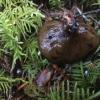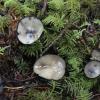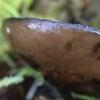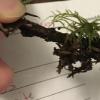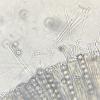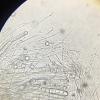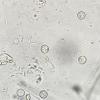
18-08-2025 15:07
 Lothar Krieglsteiner
Lothar Krieglsteiner
.. 20.7.25, in subarctic habital. The liverwort i

02-02-2026 21:46
Margot en Geert VullingsOn a barkless poplar branch, we found hairy discs

02-02-2026 14:55
 Andgelo Mombert
Andgelo Mombert
Bonjour,Sur thalle de Lobaria pulmonaria.Conidiome

02-02-2026 14:33
 Andgelo Mombert
Andgelo Mombert
Bonjour,Sur le thalle de Peltigera praetextata, ne

31-01-2026 10:22
 Michel Hairaud
Michel Hairaud
Bonjour, Cette hypocreale parasite en nombre les

02-02-2026 09:29
 Bernard CLESSE
Bernard CLESSE
Bonjour à toutes et tous,Pour cette récolte de 2

01-02-2026 19:29
 Nicolas Suberbielle
Nicolas Suberbielle
Bonjour, Marie-Rose D'Angelo (Société Mycologiq

31-01-2026 09:17
 Marc Detollenaere
Marc Detollenaere
Dear Forum,On decorticated wood of Castanea,I foun

29-08-2025 05:16
 Francois Guay
Francois Guay
I think I may have found the teleomorph of Dendros
 Hello, I need some help with this ID.
Hello, I need some help with this ID. Growing on wood, presumably Sitka spruce, in mature forest, Oregon coast. The things I can come up with that seem similar from the book Ascomycete Fungi of North America are Humaria hemisphaerica and Trichophaea and Chaetothiersia, however, none of the micro features match for any of those. Hooked paraphyses, round spores filled with granular content measuring 11.25-12.5 microns. Thank you in advance for any suggestions.


As far as being faded, I doubt the color was a condition of age, but perhaps a white form? There were about 20 fruit bodies in the vicinity and all of them were white inside.

Hi Leah,
Welcome on this forum.
I am not particularly keen on Sarcosomataceae but you will find on Ascomycete.org a study on Plectania melaena (= P. vogesiaca)
see https://ascomycete.org/Portals/0/Archives/AscomyceteOrg%2005-01%2047-52.pdf
Amitiés. Michel

Viktorie

